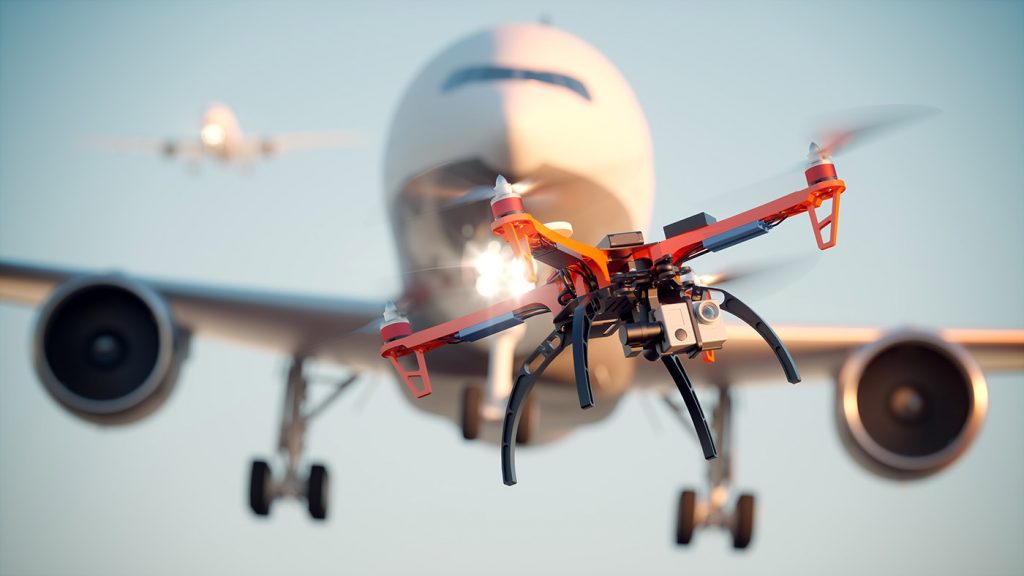
On February 1st, a video was posted on the sUASNews website, showing a hobbyist drone flying in close proximity to a major airliner over Las Vegas. This was cause for concern for major trade organizations, such as the Air Line Pilots Association, the National Air Traffic Controllers Association and Airlines for America, all of which joined forces in a letter to legislators. The trade groups pled with Congress to remove a provision exempting hobbyist drones from Federal Aviation Administration (FAA) regulations. Due to the exemption, certain drones do not have to register with the FAA, making it difficult for the agency to keep an eye on their activities.
Call for Greater Enforcement of Existing Laws
Chad Budreau, of the Academy of Model Aeronautics (AMA), emphasized that the fly-over in Las Vegas was not legal to begin with and thus not could not be attributed to the exemption in question. Budreau, nonetheless, agrees that more regulation and education regarding the dangers of flying drones, would be a good thing. “As we have seen with recent incidents like the Las Vegas drone video, some rogue flyers choose to operate in an unsafe manner despite existing drone laws,” he told Bloomberg. He continued, “The FAA and local law enforcement must hold these people accountable.”
Stronger Regulations
Despite the fact that the Las Vegas fly-over was illegal, the airline lobby pressed Congress to step up its efforts in regulating hobbyist drones, saying, “We strongly urge you to remove legislative restrictions that have been placed on the FAA that limit its safety oversight of [unmanned aircraft systems].” They continued, “The likelihood that a drone will collide with an airline aircraft is increasing. By providing the FAA with the full authority to regulate all UAS operations, the safety of passenger and cargo flights will be protected.”
Safety Is an Issue
The trade groups may be right to highlight safety concerns around drone flights. An FAA-sponsored study found that drones, though small, can pack a punch when they come in contact with carriers. Drones may be lightweight and tiny in relation to large aircrafts, but they are also composed of dense metal parts that could deal severe damage to a plane’s engines, wings or windows. Gerardo Olivares, a researcher from Wichita State University, noted that airplanes are generally equipped to withstand the impact of small birds. However, he continued, this “doesn’t mean they are going to be able to withstand a 4-pound or an 8-pound UAS impact.”
To be clear, the study – which occurred over a 14-month period and included multiple impact tests at four different universities – concluded that drones, weighing between 2.7 and four pounds, would probably not yield life-threatening damage but could majorly affect the vital parts of an aircraft.
More and More Incidents
The study’s conclusions are compounded by the fact that safety incidents are on the rise. Drones have been known to fly too close to other aircrafts – such as in Las Vegas – and to fly improperly. In fact, in 2017, the FAA found that 250 incidents occurred on a monthly basis. That’s almost double the number of events in 2016, when an average of 159 drone-related incidents were recorded each month.
Registration
In May of last year, a judge delivered an opinion cancelling the FAA’s drone-registration requirement. Not long after that decision, the FAA reinstated the registration requirement but maintained an exemption for hobbyists, creating a kind of loophole. But even with drone flight requests, the FAA has said that it can’t quite keep up with the growing demand. As a result, air traffic controllers have received phone calls from people asking for permission to fly. “These calls create distractions for air traffic control management,” the FAA said in a notice, entitled “Request for Emergency Processing of Collection of Information by the Office of Management and Budget.”
Actual Collisions
The airline lobby’s letter comes only several months after two reported collisions. One accident involved a Black Hawk helicopter and resulted in relatively severe damage but no injuries. The second collision, which happened in Quebec airspace, resulted in damage to the wing, but once again, there were no reported injuries.
Looking ahead, tensions may begin to mount as companies like Amazon start to explore the possibility of using drones as vehicles for commercial delivery. These companies may want to delay drone-related regulations for as long as possible.